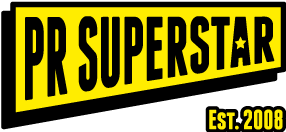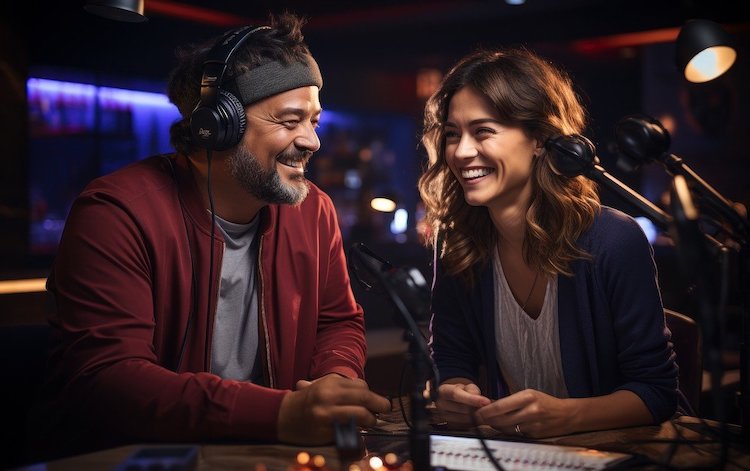
Media Training Tips: The Only Guide You’ll Ever Need
It’s like watching a train wreck — horrible, but you just can’t look away.
I’m talking, of course, about interviews gone wrong. Maybe the CEO dodged too many questions, came off as shady, or forgot the name of his own company. Despite the damage these incidents can do to a company’s reputation, they happen far more frequently than they should. Why? Because most spokespeople go into interviews without any media training.
You’re a busy entrepreneur, owner of a start-up, or head of a stock market listed company. Public relations, media training and general wordsmithery are probably not your highest priority. But speaking to the media is different to addressing board members or clients. And whether you like it or not, at some point you’ll probably have a microphone plonked in front of you and asked for your views.
That’s why, when you come face to face with the media, interview training is vital.
What is media training?
Public relations media training helps you to avoid faux pas and to represent your company in an engaging, professional way. Without it, you could end up freezing under the spotlight, stumbling over your words, or accidentally saying something that tanks your brand.
This training tips guide will give you a comprehensive run-down on how media training can help you survive an interview. But first, let’s look at why media training matters.
Why is media training important?
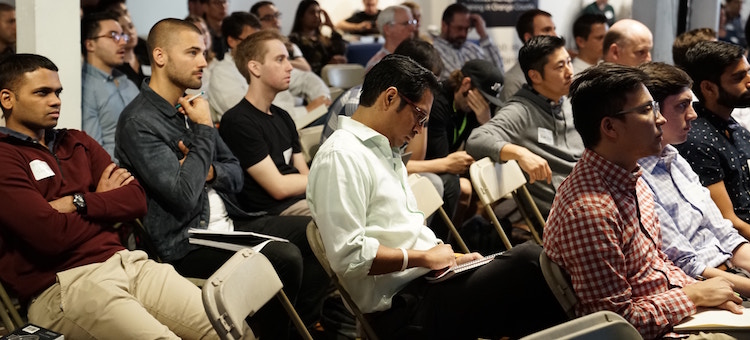
Any media appearance is a PR opportunity. As such, you should go into it with these two goals in mind:
- Showcase your company in a positive way
- Give the journalist/editor/interviewer what they want
Media skills training will help you achieve both.
Let’s go over six top media training tips for meeting these goals.
Media Training Tips #1 — Do your research
Almost all media appearances are planned weeks ahead of time. If you want the appearance to be successful, use that time to prepare.
Find out as much as you can about the radio/TV station and the presenter in advance, so you don’t make any embarrassing mistakes like pronouncing their name wrong live on air.
Here are some important things to consider:
- Is the interview live or pre-recorded?
- Will there be other guests, or just you and the host?
- How much time will you have on air?
- Who is the audience likely to be?
That last point matters because you’ll need to talk differently on a daytime chat show than you would for a specialist trade magazine.
Once you’ve researched the show you’re appearing on, it’s time to focus on the topic you’ll be discussing.
It may sound obvious, but make sure you know what you’re talking about — don’t blag it or flub your facts, like British politician, Diane Abbott. Her 2017 LBC appearance with Nick Ferrari is a classic car-crash interview, which was caused by insufficient preparation. A poor grasp of the statistics she wanted to use made both her and her political party look unprepared and poorly organised.
Make notes beforehand and memorise any necessary facts, figures, or statistics. Show yourself to be a knowledgeable figure, and there’s more chance of you being invited back.
Media Training Tips #2 — Talk in soundbites
The key to effective media interview training is learning how to speak in soundbites.
As a passionate business leader, you can no doubt talk about your industry and business ad infinitum. While it’s great that you know your stuff inside out, journalists (and the general public) don’t care. They’ll only remember soundbites.
The secret? Less is more. Keep your responses concise, avoid unimportant details, and use clear-cut language.
Start crafting soundbites by considering your top three messages. They don’t have to be of world-shattering importance. Your first message might just be a concise explanation of what your business does. Another might focus on what makes you different from your competitors.
You should also keep in mind what you don’t want to say. When you’re on the spot, it’s easy to let something slip that should really stay private.
Write a list of sensitive topics beforehand, and come up with ways to divert the conversation to safer ground if they come up.
Media Training Tips #3 — Take control
Remember that you’re in control. The interviewer might be asking the questions, but your responses are what steer the course of the conversation. As such, don’t be afraid to take a few moments to gather your thoughts.
Taking a sip of water or saying ‘that’s a good question’ can buy you a few precious seconds to come up with clear, intelligent answers. Anything’s better than blurting out the first thing that comes to mind or making things up on the spot. If you don’t know a specific fact or figure, it’s usually better to own up to it.
Of course, there are some things you really should know.
Remember that time in 2016, for example, when presidential candidate Gary Johnson didn’t know what the city of Aleppo was? He really should’ve tried to shift the conversation in a different direction, rather than expose his ignorance on TV and social media. Interview training could’ve saved him.
Media Training Tips #4 — Prepare for tough questions
We’ve all cringed at interviews where a shady politician spends 5-minutes dancing around a question like a prima ballerina. Former Conservative Party British prime minister Theresa May was renowned for it.
Bear in mind, a journalist’s job is to ask difficult questions, so you need to be prepared for them. To avoid being ambushed in a media interview, rehearse answers to difficult questions with your PR team.
If you feel like an interviewer is putting words in your mouth, say so, and respond in your own terms. This will enable you to take back control and choose what details you do or don’t want to include in your response.
Media Training Tips #5 — Practice your crisis comms
Speaking to the media after a crisis is a litmus test for your media skills. Training for this is essential. Do it well, and you can garner sympathy and widespread support. Mess it up, and you could end up like Boeing in 2018. Forbes reported that their too-little-too-late response to repeated airline failures cost them billions, not to mention the hit to their reputation.
There are several ways to prepare for a crisis.
First things first, you might not be the best person to speak to the press. With your reputation on the line, you need the best of the best. Read: How to Choose the Right Spokesperson in a Crisis.
But let’s say the press is at your door, and they’re baying for blood. What do you do?
The best way to make a bad situation worse is by being tone-deaf. And it’s not just about what you say. What you wear, the inflections in your voice and your facial expressions all leave an impression. If you’re perceived as doing something to hurt the economically disadvantaged, leave the Hermès scarf at home.
Generally, speaking, you want to hit the following points when talking to the media during a crisis:
- You’re aware of the problem
- You’re actively fixing it
- You’re making sure it won’t happen again
- You want to apologise to everyone affected
Most important, though, is your demeanour. When facing the media, interview training to help you stay calm and collected is vital. If you pitch your voice higher when challenged on a point, you’ll come across as frustrated or combative, rather than calm and together. Those aren’t qualities of trustworthy business leaders.
There are plenty of other ways to wreck your media response to a crisis, of course. See: Seven Deadly Sins of Crisis Communications.
Media Training Tips #6 — Avoid social faux pas
With social media making everything sharable and re-watchable, any TV or radio appearance is open to scrutiny. Nerves can be forgiven but forgetting basic social etiquette can’t. The general rule of thumb is to be polite, listen, don’t interrupt others, and appear interested in the conversation.
If you’re a man, though, there are some additional tips to keep in mind. Whether it’s manspreading or mansplaining, it’s easy to look like a neanderthal due to poor word choice, etiquette or body language.
As a guy, ensure your tone doesn’t come off as patronising when you’re speaking to women. If a female guest is on a show with you, it’s because they’re an expert or have insight to the topic at hand. Avoid explaining things without prompting or assuming that they know less than you.
And when you’re sitting, try not to display your groin to the entire nation on morning TV, like pet detective Rob Kenny did in 2019. Rather than listen to what he had to say, people were focusing on his unprofessional posture and body language.
Media training for radio, TV and phone interviews
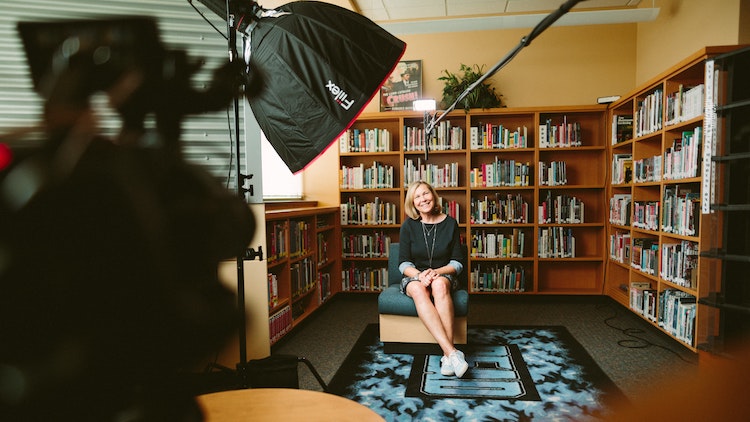
Newspapers, TV, radio and social media deliver news in different ways and require different media skills. Training will make you more effective at adapting your message to the medium at hand.
Here are some tips for three common interview formats: radio, TV and over the phone.
Radio Interview Tips
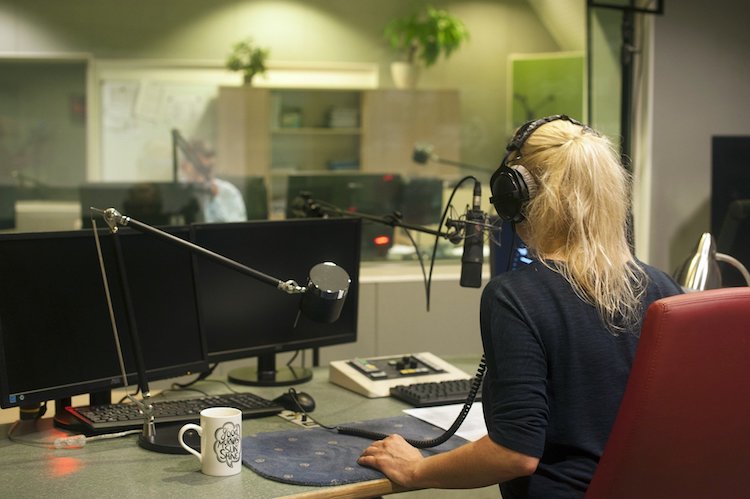
Radio interview tips #1: Be mindful of high drop-in, drop-out rates
Many people who listen to the beginning of your segment aren’t going to be there at the end. Other listeners will join in the middle. It’s the nature of the beast.
So, make sure you repeat your main messages several times during the interview. But don’t use the same words; find different ways of articulating your points.
Radio interview tips #2 — Don’t hard sell
You’re not a guest on a radio show to sell your products or services — that’s what ad breaks are for. You’re there to inform, educate, entertain, or inspire. Constantly plugging your product will just alienate the audience and host. Instead, naturally weave in positive messages about your company.
Radio interview tips #3 — Have a cheat sheet
A benefit of radio over television interviews is you can use a cheat sheet and your listeners will be none the wiser. If nerves kick in on the day and your mind goes blank, have a handy prompt to get you back on track. Facts, figures, or an outline of the key points you want to hit all make for great notes.
There’s no substitute for practice, though. Just because you have a cheat sheet doesn’t mean you can wing the interview. If you’re unprepared, it’ll show. It’s also hard to sound lively and spontaneous when you’re reading off a piece of paper, so use it as a tool, not a crutch.
TV Interview Tips
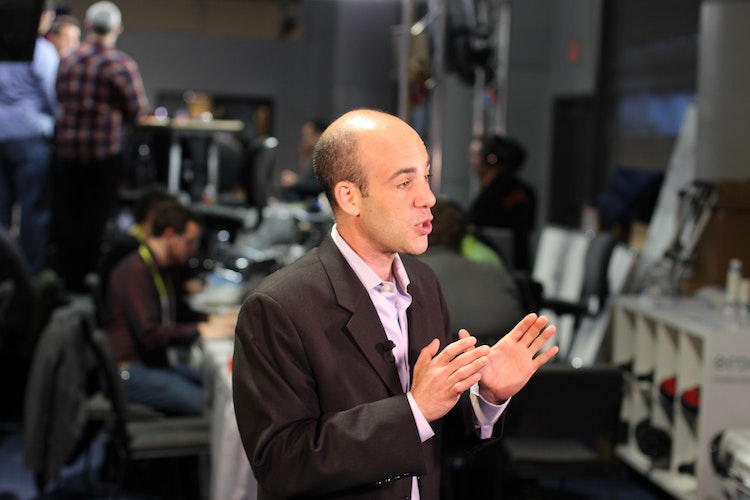
TV interview tips #1 — Get familiar with the studio environment
Unlike other forms of media, interview training for TV has a physical component to it.
You may be a seasoned public speaker, but bright lights and a camera in your face can throw anyone off. Being familiar with the environment will ensure you keep your cool and answer questions confidently.
Here are some tips:
- Drink water regularly to cool yourself down
- Don’t wear hot clothing
- Tell the production staff if the lights are distracting you
TV interview tips #2 — Maintain eye contact
If you’ve given a TV interview before, you’ll know just how distracting a studio environment can be. Off camera there are lights, equipment, moving cameras and stage managers making weird gestures at the presenters.
As bewildering as this might be, try to shut it all out and stay focused on the matter at hand. Make eye contact with your interviewer, ignore the cameras and focus on what you’re there to say.
TV interview tip #3 — Let them get you camera ready
These days everyone’s pores, wrinkles and shiny T-Zones are displayed in glorious ultra-HD. So, swallow your pride and let the studio’s make-up artist put a bit of slap on you.
Most of the time this is just a bit of powder to blot out any shininess. But if you’ve got any bothersome spots or dark circles, these can be fixed too. You’ll feel much better once you’re camera ready.
If you don’t take your make-up seriously, well, just take a look at what happened to Trump lawyer Rudy Giuliani during a 2020 press conference.
TV interview tip #4 — Dress for the occasion
When picking an outfit, think carefully about what it says about you. Are you trying to look professional? Or informal and relaxed? You want your outfit to match whatever image you’re trying to convey.
Here’re some general rules:
- Stay away from too much black
- Avoid anything with a brand name or controversial slogan
- Stripes and small, intricate patterns don’t appear well on camera
An example of a truly baffling costume choice was Scott Shellady’s appearance on Fox news during the GameStop stock surge of early 2021. His cow-print jacket and novelty bow-tie made him look more like a cartoon character than someone with trustworthy economic opinions.
Phone Interview Tips

Phone interview tips #1 — Make sure the connection is good
When you’re giving an interview over the phone, you want to make it easy for the reporter to hear your thought-provoking insights and sterling wit. Either take the call in your office, or in a quiet place without much background noise. Most importantly, make sure you’ve got a strong signal. You don’t want the call to drop halfway through.
Phone interview tips #2 — Follow the reporter’s lead
Because they’re not in front of a live audience, phone interviews tend to be more relaxed than TV or radio appearances. You can usually be a bit more casual and lighten the mood with some banter.
An important media training tip, however, is to read the interviewer’s tone. If they jump right into the questions, they’re probably on a tight deadline. Keep things to the point. If they want further details or clarification, they’ll ask for it.
Phone interview tips #3 — Don’t forget the follow-up
Phone interviews aren’t over when they’re over.
First of all, don’t hang up the moment you’re done. Being rude will sour the reporter’s opinion of you, wrecking chances of a repeat interview. Be sure to thank them for the opportunity, even if you were sweating bullets throughout.
It’s also smart to let them know you’re available for a follow-up. The reporter might want to clarify something or get your take on an event that happens between the time of the interview and its publication. Giving them a rough idea as to when you’ll be available for follow-up shows you’re a thoughtful guest.
